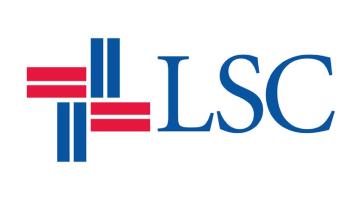Table of Contents
Rights of Disabled Children Under ADA

|
Rights of Disabled Children Under the ADA |
Under Title II of the ADA—Americans With Disabilities Act—public schools cannot discriminate against students because of their disability.
This page covers some of the ways the ADA impacts your child.
The purpose of the ADA is to eliminate discrimination against people with disabilities. The law is broken up into three “Titles” that protect different groups of people. Title II of the ADA is the section that affects children in public schools.
|
Who is Covered? |
In order to be protected by the ADA, a person must be a “qualified individual with a disability.” This means that your student has to pass two hurdles. First, the student must be disabled. The definition of disability under Title II of the ADA is:
1. a physical or mental impairment that substantially limits one or more of the major life activities of such individual;
2. a record of such impairment; or
3. being regarded as having such an impairment.
Exception: The following are not included in the definition of disability under the ADA: Transvestism, transsexualism, pedophilia, exhibitionism, voyeurism, gender identity disorders not resulting from physical impairments, or other sexual impairments; compulsive gambling, kleptomania, pyromania, or psychoactive substance abuse disorders resulting from current illegal use of drugs.
The second requirement for protection under the ADA is that the disabled student must be eligible to receive the services or participate in the programs being provided by the school. 28 CFR 35.104. As long as a student is registered in the proper school and is eligible to attend that school under state law, the second requirement is generally met.
Title I of the ADA prohibits discrimination in employment. Title III prohibits discrimination based on disability at “public accommodations.” Public accommodations does include private schools. However, religious entities are exempt from Title III. 42 U.S.C. §12187. As a result, not all private schools are covered by this law.
|
The School Must Be Accessible |
One of the most common situations where the ADA becomes important for students with disabilities is when the district has school buildings that are so old that students with physical disabilities can’t get to all of the parts of the building.
Title II of the ADA does not require that school districts provide access to every room in their buildings. Instead, the law requires school districts provide what is called “program accessibility”. This means students with disabilities must have access to all of the same programs that are available to non-disabled students.
For example, if a student who uses a wheelchair wants to take an art class, the school can’t refuse to put that student in the art class just because it is located on the third floor and there is no elevator or lift to get the student to the class. Instead, the school must find some way to make the art class available, such as moving the classroom to the first floor.
The school does not have to make major structural changes to the building so that the student can get to the third floor, as long as it makes sure that any programs on the third floor can be moved to a place where the student with a disability can participate. If the program or service provided by the school cannot be moved, then the district may have to pay for structural changes (such as an elevator) to make sure that they are providing accessibility to all of their programs.
|
How to Make a Complaint to the School |
Public school districts that employ more than fifty people must identify a person who is responsible for investigating any ADA complaints. The school must make the person’s name, office address and telephone number available to the public.
They must also develop and publish a grievance procedure. 28 CFR 35.107. This means that there should be a way for you to make a complaint directly to the school district if you feel that they are violating the ADA.
So, to make a complaint, you should:
1. Ask the school district for the name and address of the school official responsible for ADA complaints.
2. Ask that school official for a copy of the ADA grievance procedure.
3. Follow the grievance procedure, which will likely include you writing out your complaint and giving it to the official. Save a copy for your records.
If you do not want to make a complaint to the school district directly, you can also file a complaint with the U.S. Department of Education. Complaints must be filed with the Department of Education within 180 days of the incident that you believe violated the ADA.
The Department of Education can give you an extension on the 180 days timeline, but only if they feel that there is “good cause” for you not filing the complaint on time. Once the Department of Education receives your complaint they will begin an investigation.
There are a variety of different ways that the Department of Education can handle your complaint. These options range from trying to informally resolve the complaint, to referring the case to the Attorney General for action. There is no specific time in which the Department of Education must complete its investigation. Unfortunately it is not unheard of to take several years for the Department to finally resolve a complaint.
|
More Information on the Web |
Check out the U.S. Department of Education’s website which lists disability related web sites on a variety of topics.
The full text of the federal regulations governing Title II of the ADA may answer additional questions you may have.
When the U.S. Department of Education investigates a complaint, it uses a book of rules for deciding how to conduct the investigation.
Notice
Prepared by Missouri legal aid lawyers. Some material used with permission of Pine Tree Legal Assistance. April, 2004. Sometimes the laws change. We cannot promise that this information is always up-to-date and correct. If the date above is not this year, call us to see if there is an update. We provide this information as a public service. It is not legal advice. By sending you this information, we are not acting as your lawyer. Always consult a lawyer, if you can, before taking legal action. Sorry, but we cannot respond to website requests for help. If you believe you have a legal problem we can help you with, call us.

